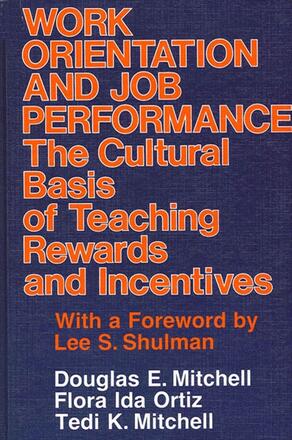
Work Orientation and Job Performance
The Cultural Basis of Teaching Rewards and Incentives
Alternative formats available from:
Description
With critical attention focused on education, and the teaching profession itself under close scrutiny by federal, state, and local officials and governing boards, a heightened sense of the need to attract and retain good teachers has surfaced as a national priority.
Based on data collected on elementary school teachers, principals, and central office administrators in a large unified school district, the authors draw upon cultural rather than economic or psychological concepts to reveal and explain how educators become oriented to their work responsibilities. The book presents a comprehensive description of the rewards and incentives provided for teachers. It also describes the roles of principals and links the principal's work to classroom performance and teaching effectiveness. Throughout this fascinating account the authors describe and reflect upon the ways in which teaching is controlled by a system of beliefs and meanings that specify the overall purposes of schooling and establish norms for social relationships with students and colleagues.
The three authors are affiliated with the University of California, Riverside, where Douglas E. Mitchell is Professor and Flora Ida Ortiz is Associate Professor in the School of Education.
Reviews
". ..an extremely relevant piece of research in terms of contemporary educational reform. In light of the current controversy over the restructuring of the teaching profession, merit pay, etc. a detailed ethnographic study of this type is enormously valuable. The theoretical introduction provided at the beginning of the book is particularly informative, along with the literature review. Their descriptions are concise and informative. "-- Eugene F. Provenzo Jr. , University of Miami